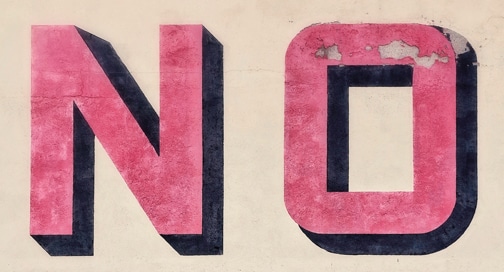The First Amendment got a thorough thrashing recently when the Tenth Circuit Court of Appeals issued a restraining order against West High School students in Salt Lake City. Its ruling was in response to a lawsuit by a student and her parents demanding that the school’s a-capella choir not sing two traditional songs because they contained the words “Lord” and “God.”
The student, 16-year-old Rachel Bauchman, and her parents who are Jewish, claimed in their lawsuit that the names “Lord” and “God” refer to the Christian God and, therefore, the song constitutes a prayer, which violates the First Amendment.
At graduation ceremonies recently, the choir complied with the court order by singing an approved song, “Consecrate the Place and Day.” Perhaps school administrators should have looked up the definition of the word “consecrate” before allowing the choir to sing this dangerous song. Consecrate means “to induct a person into a permanent office with a religious rite; especially to ordain to the office of bishop; to make or declare sacred; especially to devote irrevocably to the worship of God by a solemn ceremony.”
Undeterred by the court’s contempt for religion, graduating senior William Badger got up on stage and invited the choir and audience to sing one of the songs, “Friends,” that had been banned by the court. The lyrics include “Friends are friends forever if the Lord’s the Lord of them.” The other banned song contained the lyric, “The Lord bless you and keep you,” a verse from the Old Testament. It is hard to believe that a court would consider a reference to “God” and “Lord” a Christian reference when the Jewish prophets, including Moses, repeatedly referred to God by these names.
What happened next is astounding. West High School principal, Bill Boston, tried to silence the crowd. Badger was physically removed from the stage by a staff member and not allowed to receive his diploma during the ceremony.
from the audience and in the newspapers. Sally Brinton, the mother of a 16-year-old student, said her family had just returned from Beijing and she was stunned to learn this was happening in the United States. “We say the of Pledge of Allegiance to the flag,” she said, noting that it includes “one nation under God,” which, she said, “is protected by the First Amendment.” She called the court ban on the graduation songs “blatant intolerance.”

If the courts believe references to “God” and “Lord” are unconstitutional, no public school student will be able to perform most of the choral works of Handel, Bach and Beethoven. Taken further, they won’t be able to study many of the greatest paintings in history that have religious themes. But they will, of course, be able to read books assigned to them which speak of God in blasphemous terms. When students and parents complain they are being force-fed anti-religious sentiments, are being force-fed anti-religious sentiments, they are met with the mantra of the pagan left, that this is the price we must pay for a healthy First Amendment.
This won’t be the end of the matter at West High. The administration is going to study a videotape of the ceremony to determine which of the students sang the forbidden words. They can’t do anything about graduating seniors, but underclassmen will be interrogated and could be subject to punishment, including forced community service. George Orwell’s “thought police” haven’t been defeated. They’ve migrated from the Soviet Union to America.
As the secularization of our culture continues, one wonders why people with religious sensibilities continue to put up with it. If they separated themselves from the system that is trying to gut what remains of the foundational principles on which the country was built (including free exercise of religion), and put their children in private schools or taught them at home, not only would the students be better off, it would force the government schools to shape up or shut down.
Perhaps next year’s graduating class at West High should sing George Harrison’s song in which he refers to his drug of choice as “my sweet Lord.” Wouldn’t that throw the courts into a tizzy?
Los Angeles Times Syndicate
